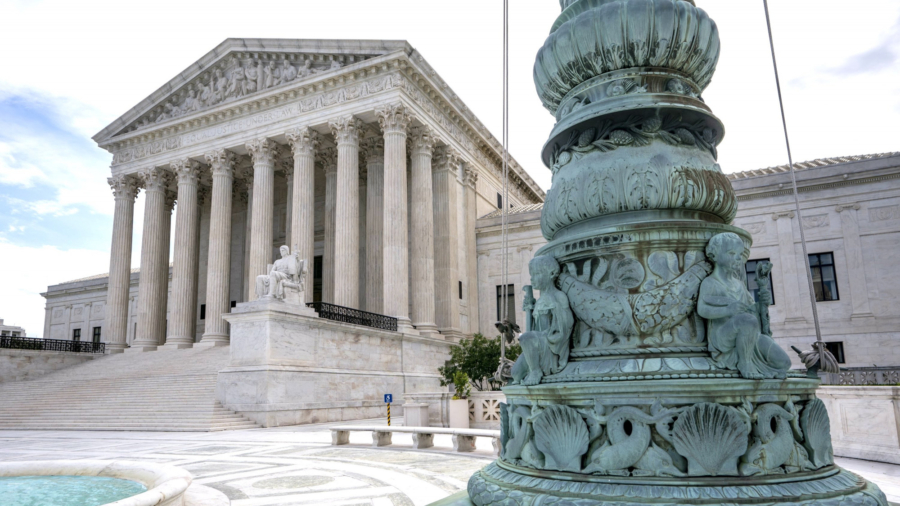Montana’s decision to leave religious schools out of a state scholarship program funded by tax credits violates the First Amendment to the U.S. Constitution, a divided Supreme Court ruled this morning.
The 5-4 decision in Espinoza v. Montana Department of Revenue is a victory for the Trump administration, which had supported the students and their parents. Oral arguments took place Jan. 22.
On the campaign trail in September 2016, President Donald Trump expressed his support for the school-choice movement.
There is “no failed policy more in need of urgent change than our government-run education monopoly,” he said.
Ethan Blevins, an attorney with the Sacramento, California-based Pacific Legal Foundation (PLF), a public interest law firm that filed a friend-of-the-court brief in the case, praised the court decision.
The ruling “recognizes a fundamental truth: kids deserve equal access to educational benefits, regardless of which school they decide to attend,” he said in a statement.
“The Montana Department of Revenue cannot prohibit students from receiving privately funded scholarship funds just because they choose to attend a religious school. Today’s decision marks a major victory for school choice and equality under the law.”
The petitioners in the case are three low-income mothers who needed the scholarship funds to keep their children in Stillwater Christian School, a nondenominational school in Kalispell, Montana. The program provided individuals and corporations a tax credit for giving as much as $150 annually to a nonprofit student scholarship organization helping poor students attend private schools.
The parents sued after the state’s Department of Revenue ruled that those scholarship funds could not be used for religious schools. A trial judge enjoined the rule and then the Montana Supreme Court struck down the program by a 5-2 vote on Dec. 12, 2018. The court declared that, unmodified by the Department of Revenue rule, the program ran afoul of the state’s constitution, which contains a “no aid” provision preventing tax dollars from flowing to religious schools.
Every member of the U.S. Supreme Court filed an opinion in the case, except for Justices Brett Kavanaugh and Elena Kagan, suggesting passions may have run high during the justices’ deliberative process.
Chief Justice John Roberts wrote the majority opinion which four conservative justices joined. In addition, Justices Clarence Thomas, Samuel Alito, and Neil Gorsuch each filed a separate concurring opinion. Justices Ruth Bader Ginsburg, Stephen Breyer, and Sonia Sotomayor each filed a separate dissenting opinion.
“A State need not subsidize private education,” Roberts writes for the court.
“But once a State decides to do so, it cannot disqualify some private schools solely because they are religious.”
In this case “the parties do not dispute that the scholarship program is permissible under the Establishment Clause [of the federal Constitution]. Nor could they. We have repeatedly held that the Establishment Clause is not offended when religious observers and organizations benefit from neutral government programs.”
During oral arguments five months ago, Justices Alito and Kavanaugh spoke of the anti-religious, and particularly anti-Roman Catholic, bias of the so-called Blaine Amendment, a failed amendment to the U.S. Constitution that would have prohibited direct government aid to educational institutions with religious affiliations. Despite the failure of the amendment at the federal level, three-quarters of the 50 states later adopted similar amendments in their state constitutions.
Laws banning funding of religious schools are “certainly rooted in … grotesque religious bigotry against Catholics,” Kavanaugh said.
Roberts echoed that sentiment in the majority opinion, tying the “no aid” provision in the Montana constitution to the era of the Blaine Amendment.
“The Blaine Amendment was ‘born of bigotry’ and ‘arose at a time of pervasive hostility to the Catholic Church and to Catholics in general’; many of its state counterparts have a similarly ‘shameful pedigree[,]’” Roberts wrote, citing a previous Supreme Court ruling and a law review article.
From The Epoch Times


